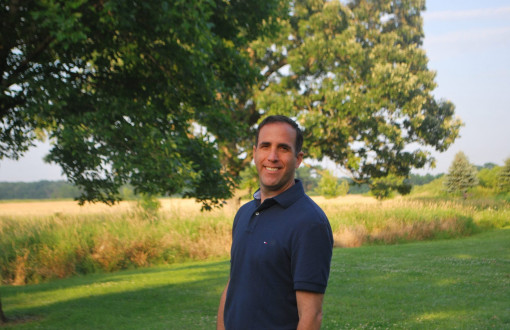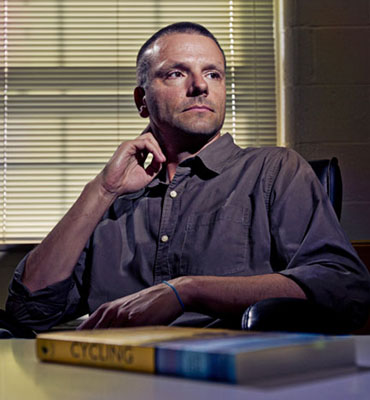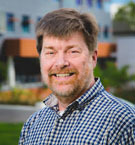Yale University Philosopher, Greg Ganssle, recently came out with his book, A Reasonable God: Engaging the New Face of Atheism (Baylor, 2009). We interviewed him about his book and the contribution of the book’s thesis for theism-atheism discussions.
How did this book come about for you?
When the new atheist books came out, I knew that many Christians would respond. Some of the early responses, on the web and those Harris discusses in his Letter to a Christian Nation, seemed to be as shrill as the strongest rhetoric in the New Atheists’ work themselves. I recognized that this is not the sort of response we need. I had both a philosophical concern and a pastoral concern. Philosophically, we want to take arguments seriously, reconstruct them in their strongest and most clear form, and then provide a response. Pastorally, we (Christian philosophers) must show how to engage with people and ideas we think are mistaken. It is, in some sense, part of our role to help shape the way believers engage in public discourse. Both of these concerns led me to take on the project.
What’s so “new” about the “New Atheists”?
Obviously atheism is not new. What is new about these writers is a combination of the following: first, their arguments are not merely against the truth of theism. They are also about the undesirability of being a theist. Second, they write with a strong rhetorical and polemical style. Third, they are not entering the academic discussion of the issues. This combination is new. Now it is not perfectly new. We can think of Bertrand Russell as an example of an academic philosopher who discusses religion in this non-academic and polemical way. But for the most part there is a new strategy or approach here.
Your book has been understandably praised as having a “nonconfrontational style” (Peter van Inwagen) and even a “sensible, evenhanded assessment of the strengths and weaknesses” (Dean Zimmerman). Did you intend such a tone, style, and approach? If so, why?
This tone was very important to me. First of all, as a Christian I know that my higher priority is to be charitable. In an intellectual dispute this requires that we take a careful, reasoned approach, and that we look for places where those we are engaging are getting issues right. We need to treat those we are challenging as our friends. I think there is no other way for a faithful follower of Christ to proceed. Second, as I mentioned before, there is a pastoral responsibility to show both how to engage these kinds of ideas and to show that we do not have to panic at challenges to our faith. Third, it is simply what it means to be a human being.
Was this a hard book to write, given the fact that most of the noticeable New Atheists do not tend to be philosophers (with the exception of Dan Dennett, of course)?
To be honest, the most difficult part was working through the texts and locating and articulating the arguments. Partly because this part of the process is exegetical, it is not as much fun as the actual writing. Of course, this part of the project will be part of many writing projects. It was here, though, that I almost quit. I almost quit because I wondered if another response was even needed. Many books were being published on the topic.
The writing itself went rather smoothly. I wrote the last chapter first (and it was published in Philosophia Christi as “Dawkins’ Best Argument: the Case against God in The God Delusion,” Vol 10. No. 1 (2008): 39-56.) I spent the summer of 2008 doing most of the rest of the writing. As far as tone is concerned, it was not a struggle. There is an advantage to working in a secular environment in that you are around very smart atheists all the time. This helps you internalize the sort of posture and virtues required of a believer in the world.
How does science (as a source of knowledge about reality) and its authority inform and form New Atheist claims about God’s non-existence?
The new atheists tend to think that religious belief is incompatible with science. Dawkins is an exception in that he thinks that the God hypothesis is itself a scientific claim. What he means, I argue, is that it is a claim that has truth value and that if it is true, there ought to be the kind of evidence that is available to scientific methodologies. Since his arguments are largely philosophical, he does not think that scientific methodologies are the only ones that are appropriate for discerning the truth of the matter.
If the new atheists thought theology was a legitimate source of knowledge, they would not be atheists.
How and why does evidence, including its value, purpose, and significance, have an important role in atheist objections against theism?
Each of the new atheists might be different in this respect. The kinds of evidence they point to varies. For example, Dennett is much less concerned with the truth of atheism than with the idea that religion must be studied scientifically. By this he means that we must seek a Darwinian- type of explanation of religious belief and practice. He engages arguments for and against religious belief mostly in his early book, Darwin’s Dangerous Idea. Dawkins does not, for example, press the problem of evil because he thinks that the claim that God is good is not essential to theism. Harris does press it. Hitchens and Dawkins argue that Darwinism provides strong evidence that God does not exist.
You show that New Atheists interact with the cosmological, ontological, and moral arguments for God’s existence. What are the strengths and weaknesses of their interaction?
One thing we can learn is how difficult our job of communication is. Many of the objections they raise to these arguments are based on misunderstandings of the arguments. These misunderstandings involve both what we may call the classical versions (in Aquinas, Paley, etc) and contemporary versions. I think those atheists who concentrate in philosophy of religion, such as William Rowe, Richard Gale and Graham Oppy, are much more nuanced because they work in these arguments. Paul Draper is another example of a charitable and careful critic of theism, though he has tended to call himself an agnostic and not an atheist.
On the moral argument, they engage two points very well. These are that we need to believe in God in order to act morally and that we need to believe in God in order to know what is right and wrong. They correctly challenge both of these notions. What they do not engage, is the very question at the center of most moral arguments. This is the issue that the reality of objective moral obligations is better explained by theism than by atheistic theories of morality.
Why do New Atheists consider the Design Argument for God’s existence to be the most important?
This was a puzzle to me. Dawkins mentions that it is the only one still in use. I think they recognize that the hunch is strong that features in the world require an explanation.
What are the strengths and weaknesses for how the New Atheists treat the Design Argument for God’s existences?
I tend to think they do a good job with the big picture of Paley’s argument. Darwinism does raise a significant challenge to this one. They are less successful with the fine-tuning argument. They are quick to embrace the many worlds conjecture, though they do not consider the challenges that raises. It is as if the mere possibility that the conjecture is true undermines the whole argument.
What are Darwinian stories of religion? How do they function?
I found this part interesting. Both Dawkins and Dennett articulate some suggestions about how this kind of explanation might work. Here, they are pretty careful to explain where they are being merely suggestive. They do not claim more for their suggestions than they ought. The other interesting part is that they do not draw any conclusions from their suggestions. They do not say, “Therefore, it is probable that God does not exist.” In fact, Dennett explicitly says the Darwinian analysis of religious belief and practice is perfectly compatible with theism.
I had to ask myself about the upshot of the Darwinian stories as articulated by these writers. I concluded that there is some reason to think, though I cannot be sure about this, that both Dawkins and Dennett might mean these stories to function as a sort of Nietzschean genealogy. In other words, these stories function to dislodge the readers’ commitment to theism, not through an argument that theism is false. Rather, the commitment is dislodged due to the presence of a plausible alternative story.
Dawkins’ “fittingness argument” is, arguably, the strongest argument among the New Atheists. What is it? How can theists respond?
Dawkins argues that the world we encounter fits better with the atheistic world-view than it does with the theistic world-view. Here Dawkins does some good work. He does not exaggerate the strength of the argument and, as I argue in the book, it does have some force. Dawkins reflects on the claim that biological life emerged and developed over a long time through Darwinism. If atheism is true, then if there is biological life, it must develop over a long time through some kind of process that is naturalistic. This is exactly what we find. If theism is true, it might be that biological life emerges and develops in the same way, but there are many other possibilities. God could bring it all into existence in one moment, or seven literal days. The fact that what we find is exactly what is required within the atheist world-view raises the probability of atheism.
I argue that Dawkins is exactly right about how these probabilities work. The fact that what we find is exactly what is required within atheism does confirm atheism.
There are two ways for theists to respond. Here I am going off what I do in the book. Theists can challenge the claim (what Dawkins calls “the fact”) that biological life actually emerged and developed through Darwinian means (including, of course, a naturalistic story about the origin of life). This approach is the one taken by those working in Intelligent Design theory. I do not raise any of this in the book because it is entirely implausible to the new atheists. To them, ID is just like young-earth creationism. It seems hopeless. It would not be wise to build a response to an argument that requires premises that seem hopeless to the very people you want to persuade. My approach might be controversial among Christians but I think there is an important principle about persuasion and the mission of the apologist.
The other way to respond, is to begin closer to the things the new atheists already believe. This is the approach I take. I can grant that Dawkins’ argument raises the probability of atheism. It does so by concentrating on one feature in the world. That is the development of biological life. There are other features, however, that are also not too controversial that point in the other direction. The four features I discuss are the fact that the universe is stable and ordered by natural laws, the fact that there are conscious beings, the fact that there is significant free agency (libertarian freedom) in the world, and the fact that there are objective moral obligations. To be sure the last two are controversial, although each of the new atheists presupposes objective moral obligations when they press moral objections to the way religious people have acted through history. The option to deny objective moral obligations is not open to them. Libertarian freedom is more controversial, though many think it is a reality.
The structure of my response is important. I do not take these four features and argue to the existence of God on their basis. All I do is show that Dawkins’ claim that the world points more clearly in the atheistic direction is false. I do think there are good arguments for God’s existence based on these features, but I do not need to develop them, since my goal is to respond to his argument.
Where do you see the discussion going between theism (especially Christian theism) and the New Atheism?
This is a good question. What I hope is that Christians begin to learn to respond more often with charity to challenges to our belief in God. I do get disturbed when some of us take pot-shots. I also hope that the public discussion of religious issues will include some of our more thoughtful representatives. I believe that this trend can come about as we continue to do good work.
How would you like to see your book used?
I’d love to see this book used as a text in philosophy of religion and apologetics courses because of the tone I tried to set. I think it could be a model. I know at least two courses that are using it.
You can learn more about Greg Ganssle by going here. Greg is also a staff member with the Rivendell Institute.




 Scholarship and Character as a Christian Academic
Scholarship and Character as a Christian Academic
 A Perspective on Perspectival Factualism: Response to Paul Gould
A Perspective on Perspectival Factualism: Response to Paul Gould
 Further Reflections on Academic Faithfulness: A Reply to Friendly Critics
Further Reflections on Academic Faithfulness: A Reply to Friendly Critics